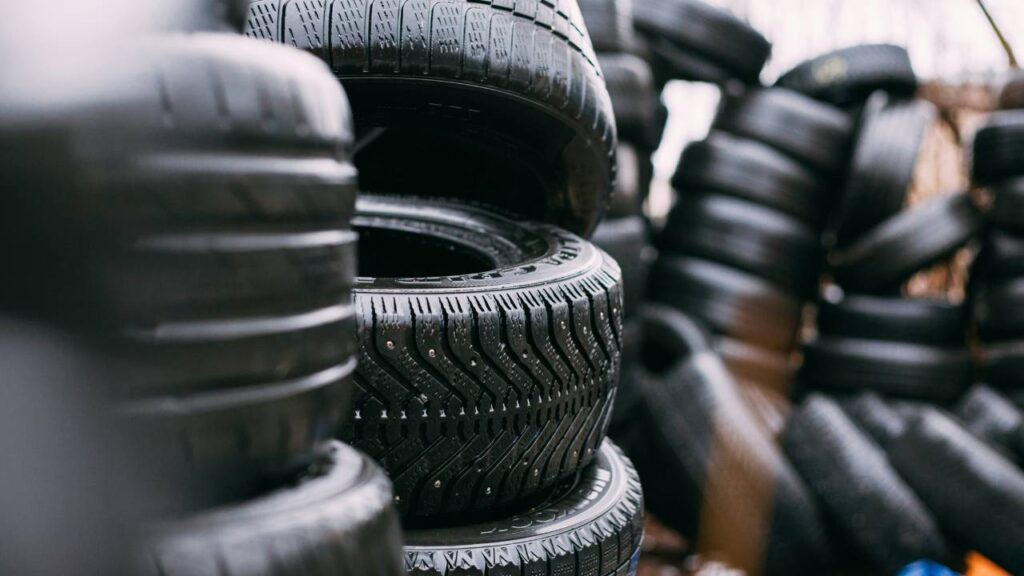Taking care of your fleet is crucial to ensure smooth operations across Ireland, and one of the most vital components of vehicle maintenance is tyres. Keeping your fleet equipped with quality tyres boosts performance, safety, and longevity. Selecting high-quality tyres for your fleet means fewer replacements, less downtime, and improved safety for your drivers.
When managing a fleet of vehicles, the right tyres can make all the difference. Quality tyres enhance fuel efficiency, reduce wear and tear, and improve handling on Ireland’s diverse road conditions. Investing in the best tyres available can result in long-term savings and fewer maintenance issues.
In Ireland, unpredictable weather and varying terrains can take a toll on vehicle performance. Ensuring your fleet has the best tyres available allows you to navigate these challenges confidently. Equip your fleet with the finest tyres to guarantee top-notch performance and reliability, no matter where your journeys take you.
Understanding Fleet Management in Ireland
Effective fleet management in Ireland requires assessing fleet needs and goals, having an overview of the Irish commercial vehicle sector, and utilising fleet management solutions to boost efficiency and service quality. All of this is even more important if you’ve just started your business – get it off to a good start so that you won’t have any problems later.
Assessing Fleet Needs and Goals
To manage your fleet effectively, start by assessing your specific needs and setting clear goals. Identify the types and numbers of vehicles required. Consider factors like vehicle usage patterns, distances covered, and cargo types.
Evaluate the maintenance needs of your fleet to ensure uptime and performance. Understand your drivers’ requirements and training needs. Keep an eye on fuel consumption and aim to reduce operational costs. Setting these foundational goals sets the stage for a well-managed fleet.
Overview of the Irish Commercial Vehicle Sector
Ireland’s commercial vehicle sector is an integral part of its economy. It includes a variety of vehicles, from light commercial vans to heavy-duty trucks. The sector is guided by regulations focusing on safety and efficiency, with sustainable practices growing in importance.
Economic and infrastructure development in Ireland boosts the demand for commercial vehicles. Industry projections suggest a rise in fleet sizes and services through 2030. Keeping updated with sector trends and regulations helps you align your fleet management practices with market needs.
The Role of Fleet Management Solutions
Fleet management solutions are essential tools for improving operational efficiency. These solutions include GPS tracking, telematics, and fuel management systems. They provide real-time data on vehicle locations, fuel usage, and driver behaviour.
With advancements in technology, fleet management solutions offer predictive maintenance, ensuring vehicles remain in optimal condition. Implementing these solutions results in better service delivery, cost reductions, and increased safety. By 2021, many businesses in Ireland had already adopted such solutions to enhance their fleet operations. Integrating these technologies into your practices will drive growth and competitiveness.
Selecting Quality Tyres for Performance and Safety
Choosing the right tyres for your fleet is crucial for ensuring both high performance and safety on the road. This involves regular upkeep, understanding safety parameters, and evaluating tyre performance metrics.
Tyre Maintenance for Fleet Longevity
Regular maintenance is key to extending the life of your tyres. By doing this, you ensure that they perform optimally and safely. Regularly check tyre pressure, as underinflated tyres can reduce fuel efficiency and overinflated ones can cause blowouts.
Inspect the tread depth to maintain adequate grip on the road. Worn-out treads can reduce traction, especially in wet conditions. Rotate your tyres every 5,000 to 8,000 miles to ensure even wear. Proper alignment and balancing also prevent uneven wear and improve handling.
Regular maintenance not only improves safety but also allows you to optimise fleet performance with the right tyres. Tyres that are well-maintained contribute to fuel efficiency and reduce the risk of accidents, ensuring that your vehicles are always ready for the road.
Safety Considerations and Tyre Selection
Safety is a top priority when selecting tyres for your fleet. Choose tyres that are appropriate for the typical road conditions your fleet encounters. For instance, if your vehicles operate in areas with frequent rain, select tyres known for excellent wet grip.
Check the tyre ratings for load capacity to ensure they can handle the heaviest loads you transport. Look for tyres with strong sidewalls to protect against impacts and punctures.
Additionally, ensure you choose tyres that perform well in diverse weather conditions. All-season tyres can be a great option for fleets in the construction sector – they operate in varying climates. Tyres that meet stringent safety standards and certifications will offer better protection for your drivers and cargo.
Tyre Performance Metrics
Evaluating tyre performance metrics helps you select tyres that meet your needs for durability, comfort, and efficiency. Look at rolling resistance, as tyres with lower rolling resistance improve fuel economy. Higher performance tyres often have specialised tread designs that enhance grip and handling.
Consider the tyre’s speed rating, which indicates the maximum speed a tyre can safely maintain. This is crucial for high-speed travel. Tyre noise levels are another important factor; quieter tyres provide a more comfortable ride for drivers.
By focusing on these key metrics, you can optimise fleet performance with the right tyres. Selecting tyres based on their performance characteristics ensures that your fleet runs efficiently, safely, and reliably.
Cost-Efficiency and Fleet Budgeting

Optimising costs while maintaining the quality of your fleet tyres is crucial for fleet management. Focus on measurable factors like maintenance expenses, total cost of ownership, and strategic budgeting for the best results.
Reducing Operating Costs with Quality Tyres
Investing in high-quality tyres can significantly lower your fleet’s operating costs. High-quality tyres provide better fuel efficiency, which can translate to substantial savings, especially for large fleets. Additionally, such tyres typically offer longer tread life, reducing the frequency of replacements and maintenance.
Regular tyre maintenance is key. Ensuring correct tyre pressure and regular alignments can extend tyre lifespan and further reduce costs. Reduced downtime from fewer tyre-related issues allows your fleet to operate more efficiently, minimising interruptions to your service schedule.
Evaluating Total Cost of Ownership
When choosing tyres, it’s essential to consider the total cost of ownership rather than just the initial purchase price. This includes fuel savings, tread life, and maintenance costs. Tyres that are more expensive upfront might end up saving you money over time due to their superior performance and durability.
Consider factors such as fuel efficiency. Quality tyres can lower fuel consumption, a significant expense for any fleet. Additionally, longer-lasting tyres reduce purchasing frequency, adding to the cost savings over an extended period.
Budget Strategies for Fleet Tyres
Developing a robust budget strategy for your fleet’s tyres involves planning and foresight. Allocate a dedicated budget for tyre purchases and maintenance activities. Doing so helps you avoid financial surprises and ensures that your fleet remains operational without unnecessary downtime.
Consider using tyre management software to track expenses and performance metrics. This data-driven approach helps in making informed decisions on future purchases and maintenance schedules. Engaging in bulk purchases or negotiating contracts with suppliers can also result in discounts, offering further financial benefits.
Proper training for your drivers on tyre management practices is also essential. Educated drivers can help spot early signs of tyre wear and tear, ensuring timely maintenance and replacement, thus maintaining the cost-efficiency of your fleet.
Ensuring Road Safety and Compliance
Maintaining road safety and complying with regulations are crucial for your fleet’s performance and legal standing. This involves understanding tyre regulations, implementing safety practices, and using technology effectively.
Tyre Regulations and the RSA
The Road Safety Authority (RSA) sets specific tyre regulations you must follow to ensure your fleet’s safety and legality. Tyres must have at least 1.6mm tread depth across the central three-quarters of the tyre and around the entire circumference.
Make sure your tyres meet these standards to avoid fines or penalties. Regular inspections are essential for compliance. It’s beneficial to be familiar with the RSA’s guidelines, which detail requirements for tyre condition, marking, and fitting. Staying informed about these regulations helps you maintain roadworthiness.
Road Safety Practices for Fleets
Road safety for your fleet involves regular maintenance and checks. Schedule routine inspections for signs of tyre wear, damage, or under-inflation. This not only enhances safety but also extends tyre lifespan.
Drivers should be trained to recognise tyre issues and immediate report them. Implementing a tyre management system can streamline this process. Proper storage and handling of tyres also contribute significantly to their longevity and safety.
Tyre Pressure Monitoring Systems
Tyre Pressure Monitoring Systems (TPMS) are valuable tools for maintaining optimal tyre pressure. These systems alert you to any deviations from recommended pressure levels, helping prevent accidents caused by under or over-inflated tyres.
Installing TPMS in your fleet vehicles can save time and reduce the likelihood of tyre-related incidents. They offer real-time insights, allowing for prompt action. Regularly checking and calibrating these systems ensures they function correctly and provide accurate readings.
Advancements in Tyre Technology and Innovation

Recent developments in tyre technology have focused on enhancing performance, durability, and sustainability. These innovations are crucial for Irish fleets navigating diverse road conditions.
The Impact of New Materials and Design
Tyre manufacturers are now using advanced materials such as silica and nano-composites. These materials improve grip and longevity, ensuring your fleet performs well even in wet conditions.
Innovative tread designs feature self-healing capabilities and adaptive patterns that adjust to different terrains. Such designs reduce wear and enhance fuel efficiency, crucial for long-distance trips across Ireland.
Run-flat tyres are another significant advancement. You can drive short distances on a flat tyre, minimising downtime and ensuring safety until a proper repair can be made.
The Future of Tyres in Electric Vehicles
Electric vehicles (EVs) have unique requirements for tyres. Tyres need to support heavier vehicle weights due to battery packs while maintaining energy efficiency. Specially designed low-rolling-resistance tyres reduce drag, extending the battery’s range.
Noise reduction is another key focus. EVs tend to be quieter than traditional vehicles, so tyre noise becomes more noticeable. Advanced foam liners and tread patterns help in minimising road noise, ensuring a quieter ride.
Moreover, tyre sensors in EVs provide real-time data on pressure and wear. These smart tyres assist in efficient fleet management by predicting maintenance needs, thus preventing unexpected downtimes.
Environmental Considerations for Fleets
When managing your fleet, it’s essential to focus on reducing environmental impact through the use of eco-friendly tyres and aligning fleet operations with sustainability goals.
Reducing Carbon Footprint with Eco-friendly Tyres
Opting for eco-friendly tyres can significantly reduce your fleet’s carbon footprint. These tyres are designed to minimise rolling resistance, which means your vehicles use less fuel. As a result, you’ll see a reduction in CO2 emissions.
Eco-friendly tyres often use sustainable materials in their construction. Natural rubber, silica-based compounds, and recycled components are common. These materials not only lower emissions but also result in less wear and tear, extending the life of the tyres. Less frequent replacements mean fewer tyres end up in landfills, further benefiting the environment.
Adopting these tyres also provides financial benefits. Lower fuel consumption translates to cost savings. Although eco-friendly tyres might have a higher upfront cost, the long-term savings and environmental benefits make them a sound investment.
Sustainability Goals and Fleet Management
Sustainability goals are becoming a crucial part of fleet management. You can align your fleet operations with these goals by adopting practices that reduce environmental impact.
Implementing a regular maintenance schedule ensures your vehicles run efficiently, reducing fuel consumption and emissions. Ensuring tyres are properly inflated and in good condition helps achieve this efficiency.
Incorporating advanced telematics systems allows you to monitor and optimise driving behaviour. Reducing excessive idling, harsh braking, and speeding can significantly cut fuel use and emissions.
Training drivers in eco-friendly driving techniques is another effective strategy. Educating them about smooth acceleration, maintaining steady speeds, and planning routes efficiently can make a substantial difference in your fleet’s environmental footprint.
Integrating these practices not only supports environmental sustainability but also helps in meeting legal and regulatory requirements regarding emissions, reflecting well on your business’s commitment to green initiatives.
Leveraging Partnerships for Enhanced Fleet Services
By working closely with tyre manufacturers and service providers, you can ensure your fleet runs smoothly and efficiently. Establishing these partnerships brings access to innovative tyre solutions and consistent maintenance, leading to reduced downtime and cost savings.
Partnering with Tyre Manufacturers for Optimal Solutions
Building relationships with tyre manufacturers can greatly benefit your fleet. Companies like Shoes for My Car Ireland offer a diverse selection of tyres from leading brands, ensuring you find the ideal fit for your vehicles.
Accessing the latest tyre technology improves fuel efficiency and enhances safety. Manufacturers often provide bulk purchasing options, leading to cost savings for your business. Regular consultations with tyre experts help you stay updated on new developments and adapt your fleet accordingly.
Collaborating with Service Providers for Fleet Efficiency
Teaming up with reliable service providers ensures consistent maintenance and timely repairs, which are essential for keeping your fleet operational. Scheduled maintenance and regular inspections detect issues before they become costly problems.
Service providers can also offer bespoke plans tailored to the specific needs of your fleet, enhancing overall performance. Establishing long-term relationships generally results in better service rates and priority support, minimising downtime. With professional help, managing your fleet becomes more streamlined and less stressful.
Maximising the Role of HR and Training in Fleet Operations

Effective fleet management goes beyond maintaining vehicles; it involves fostering employee engagement and ensuring safety through comprehensive HR practices and training programmes.
Fostering Employee Engagement and Development
Engaged employees are more likely to be committed to their roles, leading to enhanced productivity. Encouraging open communication channels within your fleet team can create an atmosphere where drivers feel valued and heard.
Investing in regular training not only hones skills but also offers career growth opportunities. Courses on defensive driving, vehicle maintenance, and customer service can elevate your team’s competencies. Regular feedback and recognition for a job well done can dramatically improve morale and motivation.
Roles of HR in Fleet Safety and Efficiency
HR plays a pivotal role in ensuring that drivers adhere to safety protocols. Instituting thorough hiring practices, including background checks and driving record assessments, is crucial.
Implementing ongoing safety training helps reduce accident rates and promotes a culture of safety. Monitoring driver performance through telematics can identify areas for improvement, while comprehensive health and wellness programmes can decrease the likelihood of fatigue-related incidents, enhancing overall fleet efficiency.
Maximising HR’s role in these areas ensures a cohesive, motivated, and safe fleet, contributing to the success of your operations.
Future-Proofing Your Fleet with IT and Data
Incorporating IT and leveraging data significantly enhances fleet efficiency and extends tyre longevity. Modern technology helps track vehicle performance, predict maintenance, and optimise operations.
Integrating IT Solutions for Fleet Management
Modern fleet management systems make your operations smoother. Real-time tracking uses GPS to provide live updates on vehicle locations. Maintenance schedules become easier to handle by using automated reminders based on mileage and time. Fuel management systems help you monitor fuel consumption and detect inefficiencies.
You can also improve driver behaviour with monitoring tools that track speed, braking, and acceleration patterns. This data helps in coaching drivers, reducing vehicle wear and tear, and enhancing safety. Customisable reporting lets you see metrics that matter most to your fleet, offering insights to improve daily operations. Investing in reliable IT solutions ultimately reduces downtimes and increases your fleet’s productivity.
Data-Driven Decisions for Tyre Lifecycle
Using data analytics, you can optimise the lifecycle of your tyres. Sensors installed in tyres monitor pressure and temperature continuously. This data helps prevent blowouts and other tyre-related incidents by providing early warning signs.
Regular analysis of tyre performance data shows you when and where tyres wear out the most. This information supports better purchasing decisions and helps in scheduling timely replacements. Predictive analytics can also determine the best rotation schedules to ensure even wear across all tyres.
By analysing historical data, patterns in tyre lifespan and performance emerge, enabling more accurate budgeting and forecasting. Practical use of data not only enhances the safety of your fleet but also maximises the return on your investment in tyres.
Conclusion
Investing in quality tyres significantly enhances the performance of your fleet. Reliable tyres ensure safety, efficiency, and cost-effectiveness, helping your vehicles run smoothly.
Choosing the right tyres not only boosts performance but also extends vehicle lifespan. This proactive approach reduces downtime and maintenance costs.
A well-maintained fleet with the best tyres can thrive in the Irish business environment. You can focus more on growth and less on unexpected disruptions.
